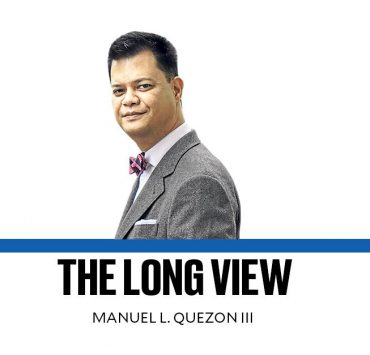Transparency, accountability, and growth

The people are angry, and rightly so. Corruption in the country hurts us numerous times over. The taxes we pay from our earnings simply fatten the pockets of the corrupt. We are not able to get the services that we deserve. Corruption affects our prospects for long-term prosperity, because it discourages business and investments.
It is a gross miscalculation to think that a country’s economic journey is far removed from good governance. Issues on transparency, accountability, and the fight against corruption could no longer be dismissed as noisy or counterproductive, or having no real effect on a country’s economic prospects.
Inclusive governance and economics are two concepts that are not divergent but in fact very closely intertwined. Inclusive governance is crucial in attracting and sustaining investments because it fosters transparency, accountability, and trust, which are essential for long-term economic growth and stability.
Consider these findings: A survey conducted by PwC Philippines and the Management Association of the Philippines revealed that 91 percent of CEOs—leaders and steerers of major private organizations in the country—believe that our country is falling short in addressing corruption, which undermines investor confidence and economic stability.
This widespread concern from the business community highlights how corruption erodes trust in institutions, increases operational costs, and creates uncertainty for investors. Corruption undermines the rule of law and weakens institutional frameworks, making it difficult for businesses to operate efficiently and securely.
And then, the World Bank Governance Indicators (2023) show the Philippines has declined in key areas such as voice and accountability, government effectiveness, rule of law, and control of corruption. This downward trend threatens investor confidence which affects long-term economic stability.
These indicators signal a troubling trend that could deter investors. They are critical measures of how well a government functions and how effectively it upholds democratic principles, enforces laws, and delivers public services. A decline in these areas suggests weakening institutional frameworks, reduced public trust, and a less predictable business environment.
For investors, such governance issues increase risks, discourage long-term commitments, and make the Philippines less competitive compared to its regional peers.
Despite the fact that the Philippines improved in economic performance, rising from 57th to 33rd in the 2025 IMD World Competitiveness Ranking, it dropped to 51st place in governance efficiency and to 46th in business efficiency. These show that our overall competitiveness has taken a hit.
These drops indicate persistent challenges in institutional effectiveness, regulatory frameworks, and operational environments for businesses. Governance inefficiencies, such as bureaucratic red tape and lack of transparency, can hinder economic progress by creating barriers to investment and innovation.
Similarly, lower business efficiency reflects issues like inadequate infrastructure, labor market challenges, and inconsistent policy implementation, which can deter investors and limit the country’s ability to compete globally.
There has also been no significant improvement in our performance in the Corruption Perceptions Index 2024 of Transparency International. Furthermore, the Philippines ranks 6th among Southeast Asian countries, placing the country near the bottom in regional corruption perception.
Such a perception of widespread corruption undermines the country’s reputation as a reliable destination for investments. It signals systemic issues in governance, including weak enforcement of anti-corruption laws, lack of accountability, and inefficiencies in public service delivery. For businesses, corruption increases operational costs, creates uncertainty, and fosters an uneven playing field, deterring both local and foreign investors.
—————-
A critical move forward in the country’s anti-corruption drive is the signing into law of Republic Act No. 12254 or the E-Governance Act just earlier this month. This law digitizes public services, reduces red tape, and increases transparency and accountability across agencies. It also enhances service delivery and access to information.
This is, however, just one among many ways forward in instituting inclusive governance. Inclusive institutions and accountable leadership build trust with both foreign and local investors. Inclusive policies ensure that economic growth benefits all sectors of society.
Thousands of Filipinos in Metro Manila took to the streets on Sunday, Sept. 21. They were driven by anger over how public funds were diverted and misused to their detriment. But let us not stop with our anger. More than ever, we need to ensure that transparency and accountability are not just used as catch words but as living principles. Only then can we put up a confident front as we encourage the outside world to take a chance on and invest in the Philippines.
—————-
Dindo Manhit is the founder and CEO of Stratbase Group.

















